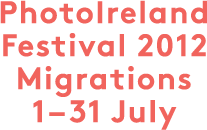NORFACE – New Opportunities for Research Funding Agency Co-operation in Europe – is a partnership between fourteen research councils to increase co-operati
on in research and research policy in Europe. Over the five project years, the partners will engage in a range of initiatives designed to deliver new levels of co-operative research policy and practice.
In 2008-2009 NORFACE introduced a transnational research programme with the theme Migration in Europe – Social, Economic, Cultural and Policy Dynamics. The programme had a total budget of almost 29 million € and granted funding to twelve transnational projects. The objectives of the programme were:
- To advance globally excellent theoretical and methodological disciplinary, inter-disciplinary and comparative research on migration which builds synergetically on a pan-European basis
- To take advantage of and develop the informal laboratory of experience, knowledge and data which migration in Europe currently presents
- To motivate and support excellence and capacity building for research on migration on a cross-national basis throughout the NORFACE countries
- To develop understanding and promote research-based knowledge and insight into migration for issues of societal, practical and policy relevance, with theoretical foundations but worked on jointly with relevant users and experts.
ploads/2012/04/1965462.jpg” alt=”The book cover- a photo of people playing on a waterfall” width=”304″ height=”475″ />
By Luigi Luca Cavalli-Sforza and Francesco Cavalli-Sforza.
300 pp. Reading, Mass., Addison–Wesley, 1995.
Luigi Luca Cavalli-Sforza draws upon his lifelong work in archaeology, anthropology, genetics, molecular biology, and linguistics, to address the basic questions of human origins and diversity. Coauthored by his son, Francesco, the book answers age-old questions such as: Was there a mitochondrial Eve? Did the first humans originate in Africa or in several spots on the planet at about the same time? How did humans get onto North America, the tip of South America, and Australia? Can the history of humankind be reconstructed on the basis of today’s genetic situation?
Cavalli-Sforza presents in a single volume for the non-specialist the fruits of over forty years of research. After providing a thorough grounding in evolutionary theory, Cavalli-Sforza takes readers back to the heady times of 1961-62 when he and a few colleagues were able to bring together genetic data on blood groups for fifteen populations spread out on five continents. By computing the genetic distance between pairs of populations, these scientists were able to develop an evolutionary tree that looks surprisingly like the ones reconstructed today, even with fifteen times more information. Using this crude tree, scientists could trace the approximate routes modern humans took in colonizing the earth 100,000 years ago and discover when populations split off from each other to form new groups. In the course of his work, Cavalli-Sforza joined forces with archaeologists, linguists, anthropologists, and molecular biologists. He shows how both archaeological and genetic data were used to track human migrations during the spread of agriculture; he probes such topics as the existence of a single ancestral language and the relationship between biological and linguistic evolution;and he brings us up to date with his current work as chief sponsor of the human genome diversity project, an ambitious attempt to analyze the most significant individual variations in human genomes.
Luigi Luca Cavalli-Sforza is Professor of Genetics Emeritus at Stanford University Medical School. He is the author of a number of seminal scientific books. Francesco Cavalli-Sforza is a creator and producer of educational films, based primarily in Italy.
er” width=”300″ height=”443″ />
“Exceptional People: How Migration Shaped Our World and Will Define Our Future”
Ian Goldin, Geoffrey Cameron & Meera Balarajan
Winner of the 2011 PROSE Award, Sociology & Social Work, Association of American Publishers
Featured as a “Page-turner” and one of the Best Books of 2011 in Politics and Current Affairs, The Economist
Few things will affect our future more than migration. A new book provides one of the best analyses of its costs and benefits.
Throughout history, migrants have fueled the engine of human progress. Their movement has sparked innovation, spread ideas, relieved poverty, and laid the foundations for a global economy. In a world more interconnected than ever before, the number of people with the means and motivation to migrate will only increase. Exceptional People looks at the profound advantages that such dynamics will have for countries and migrants the world over. Challenging the received wisdom that a dramatic growth in migration is undesirable, the book proposes new approaches for governance that will embrace this international mobility.
The authors’ recommendations for the future are the book’s most important contribution to the field of migration studies. Goldin, Cameron and Balarajan put forward a convincing case for the long-term advantages of migration, and argue that governments should do more to reap the benefits of such shifts rather than seeking only to control their borders. Migration should not be seen as a problem, they contend, but rather an inherent characteristic of globalisation. In future, they propose, states and international organisations should extend transnational rights, encourage migrants’ social and economic progression, promote and extend the legal migration framework, fight xenophobia, discrimination and abuse, and enhance the process of data collection.
Their calls for open borders, the freer movement of people and the creation of a global institution to manage migration are not without controversy. But in a work that is an essential read for anyone with an interest in the subject, their arguments are buttressed by a deep understanding of the past, a comprehensive engagement with the present and a clear vision of the future.
More info:
http://www.economist.com/node/18741382
http://www.timeshighereducation.co.uk/story.asp?storyCode=416862§ioncode=26








